
Yukiko Asada, Ph.D.
National Institutes of Health Clinical Center (NIH CC)
Dr. Yukiko Asada was born and raised in Japan. She received her B.S. in biology and M.S. in environmental sciences from the University of Tsukuba in Japan, her Ph.D. in population health from the University of Wisconsin-Madison, and her post-doctoral training in bioethics at Dalhousie University in Canada. She remained at Dalhousie University for over 19 years where she became a tenured full professor. Dr. Asada joined the NIH CC’s Department of Bioethics in 2022 as a tenure-track investigator with a focus on health disparities/inequalities and ethics. She is a quantitatively trained population health researcher who focuses on ethical issues in population health. Her research seeks to make explicit the implicit assumptions underlying quantitative methods used in population health research. Her work is broadly situated within the emerging field of population-level bioethics. Her program of research articulates the concept of health inequity, advances the measurement of health inequity, and promotes public dialogues on health inequity. Dr. Asada’s research contributes to the establishment of sound foundations of fairness in health systems and the health of populations locally, nationally, and globally.
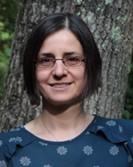
Tijana Ivanovic, Ph.D.
National Institute of Allergy and Infectious Diseases (NIAID)
Dr. Tijana Ivanovic, who was born in Serbia (formerly Yugoslavia), earned a B.S. in microbiology and molecular genetics from UCLA in 1999, and a Ph.D. in virology from Harvard University in 2008. She did postdoctoral work with Steve Harrison (Harvard University), funded in part by a L’Oreal Fellowship for Women in Science, developing single-particle methods based in total internal reflection fluorescence microscopy for studying virus membrane fusion. As an assistant professor at Brandeis University, she led an independent research program focused on viral assembly, virus-host interaction, and viral adaptation. Dr. Ivanovic believes that deep mechanistic understanding of virus function that can come from advanced techniques is at the cusp of delivering breakthroughs in our understanding of how to combat viruses that are a major threat to the human population.
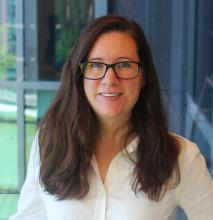
Sarah S. Jackson, Ph.D., M.P.H.
National Cancer Institute, Division of Cancer Epidemiology and Genetics (NCI DCEG)
Dr. Sarah S. Jackson was born and raised in Washington, D.C. She earned a B.A. from Grinnell College, an M.P.H. from George Washington University, and a Ph.D. in epidemiology from The University of Maryland, Baltimore. In 2018, she started at NCI DCEG as a postdoctoral fellow in the Infections and Immunoepidemiology Branch, where she is now a Stadtman tenure-track investigator. She investigates sex differences in cancer incidence and survival, and cancer risk factors, cancer screening, cancer incidence and outcomes among transgender and gender diverse individuals.

Julieta Lischinsky, Ph.D.
National Institute of Environmental Health Sciences (NIEHS)
Dr. Julieta Lischinsky was born and raised in Buenos Aires, Argentina, and finished high school in the USA. She obtained an Honours B.S. degree from the University of Toronto where she pursued a psychology specialist and a neuroscience major. She completed a Ph.D. in molecular medicine and neuroscience from George Washington University. She conducted her postdoctoral research at NYU Grossman School of Medicine where she received the prestigious Leon Levy Fellowship in Neuroscience and NIMH K99 Pathway to Independence Award to research the neural mechanisms for social behaviors. As an Earl Stadtman tenure-track investigator in the Neurobiology Laboratory at NIEHS, she is leading the Neurobehavioral Circuits Group that seeks to elucidate the developmental, cellular and circuit mechanisms for the processing of social information and establishment of social behaviors across postnatal development.
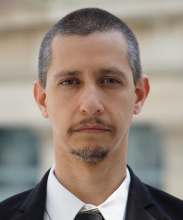
Augustin Luna, Ph.D.
National Library of Medicine (NLM)
Dr. Augustin Luna is a first-generation college graduate who grew up in rural Georgia and is of Mexican-American descent. He earned a B.Sc. in biomedical engineering from the Georgia Institute of Technology and a Ph.D. in bioinformatics from Boston University in a joint program with NCI. After post-doctoral research at the Memorial Sloan-Kettering Cancer Center and the Dana-Farber Cancer Institute, he was a research associate at Harvard Medical School with an affiliation at the MIT/Harvard Broad Institute. His research areas are network biology focusing on the systematic understanding of mechanisms by which biological networks respond to external perturbations and standardizing representations of biological data for integrative purposes. His laboratory seeks to understand disease biology through the development of mechanistic and statistical computational models involving gene regulation, genomic alterations, proteomics, and metabolism, with particular emphasis on breast cancer and rare cancers. The goal is to gain insight into network properties of human disease and to utilize this knowledge to improve treatment options and clinical decision-making. Dr. Luna is a Stadtman tenure-track investigator in the Computational Biology Branch of NLM with a secondary appointment in the Developmental Therapeutics Branch of NCI.
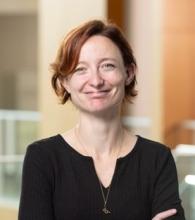
Diana Monteiro, Ph.D.
National Cancer Institute, Center for Cancer Research (NCI CCR)
Dr. Diana Monteiro was born in Porto, Portugal. She obtained a B.Sc. and M.Chem. in medicinal chemistry at the University of Leeds (United Kingdom), where she secured a Wellcome Trust fellowship for her Ph.D. with the Astbury Center for Structural Molecular Biology. She was then awarded a Louise Johnson Fellowship with the Center for Ultrafast Imaging, Universität Hamburg (Germany), followed by a postdoctoral fellowship with the Hauptman-Woodward Medical Research Institute in Buffalo, New York. She is currently a Stadtman tenure-track investigator in NCI CCR’s Center for Structural Biology. Her research focuses on determining the structure and dynamics of proteins using serial and time-resolved crystallography. Dr. Monteiro also has an interest in radiation sensitive and oxidation sensitive proteins as well as in methods development for automation and throughput of protein crystallization.
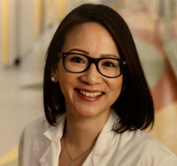
Rosa Nguyen, M.D., Ph.D.
National Cancer Institute, Center for Cancer Research (NCI CCR)
Dr. Rosa Nguyen was born and raised in Hamburg, Germany, where her parents immigrated from Vietnam. She received her M.D. from the University of Hamburg and her Ph.D. from the University of Tennessee Health Science Center. Dr. Nguyen completed her pediatric residency at the University of Maryland and subsequently specialized in pediatric hematology-oncology at St. Jude Children’s Research Hospital. Following her postdoctoral studies at the National Heart, Lung, and Blood Institute and NCI, she established her laboratory in 2021 in the Pediatric Oncology Branch at NCI as a Physician Scientist Early Investigator and then became a Lasker Clinical Research Scholar and tenure-track investigator. Dr. Nguyen’s laboratory mission is to develop new immunotherapies for children with solid tumors, particularly neuroblastoma, for whom outcomes are still dismal. Her bench-to-bedside and back approach focuses on understanding the underlying mechanisms of immunotherapy response and resistance.

Manu Platt, Ph.D.
National Institute of Biomedical Imaging and Bioengineering (NIBIB)
Dr. Manu Platt was born in Trenton, New Jersey, and received his B.S. in biology from Morehouse College and Ph.D. in biomedical engineering from Georgia Tech/Emory University as a David and Lucile Packard Predoctoral Fellow and a NASA/Harriett G. Jenkins Fellow. After a UNCF/Merck Postdoctoral Fellowship at MIT, he returned to Georgia Tech/Emory as an assistant professor in the Coulter Department of Biomedical Engineering, rising there to full professor. Integrated with his research are mentoring goals of changing the look of the next generation of scientists and engineers, which he has pursued through multiple leadership roles that have been recognized with numerous awards. In 2023, he became the inaugural director of the NIH-wide Center for Biomedical Engineering Technology Acceleration (BETA Center), housed at NIBIB where he is also the associate director for Scientific Diversity, Equity and Inclusion, a tenured Senior Investigator, and Chief of the MATRICES (Mechanics and Tissue Remodeling In Computational & Experimental Systems) Lab. His research program focuses on proteolytic mechanisms of disease, translational approaches to reduce strokes in people affected by sickle cell disease and harnessing proteolytic networks and systems biology tools to predict disease progression in patients with breast cancer.

Florencia Pratto, Ph.D.
National Institute of Diabetes and Digestive and Kidney Diseases (NIDDK)
Dr. Florencia Pratto was born in Uruguay and was raised in Argentina, where she earned her bachelor's degree in biochemistry. She later relocated to Spain to pursue her doctoral studies, earning her Ph.D. from the Autonomous University of Madrid working on plasmid segregation systems in bacteria. She then joined the NIH as a postdoctoral fellow where she switched fields and studied recombination initiation during mammalian meiosis, developing novel technologies for investigating previously challenging systems. She became a staff scientist at NIDDK where she is now a Stadtman tenure-track investigator. The aim of her research is to understand the control of meiotic recombination and to determine how this process is coordinated with meiotic replication. The lab will focus on how these events are regulated to ensure fertility and avoid genomic instability.
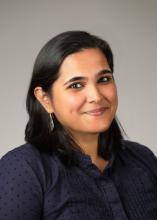
Ramya Ramaswami, M.B.B.S., M.P.H.
National Cancer Institute, Center for Cancer Research (NCI CCR)
Dr. Ramya Ramaswami was born and raised in Singapore and moved to the United Kingdom, where she received B.Sc. and M.B.B.S from Imperial College London. Following medical training in the U.K. National Health Service, she was inducted as a member of the Royal College of Physicians and completed her specialty training in medical oncology. She received an M.P.H. with an epidemiology concentration from Columbia University Mailman School of Public Health and served as an editorial fellow at the New England Journal of Medicine. Dr. Ramaswami is a Lasker Clinical Research Scholar within the HIV and AIDS Malignancy Branch at NCI, leading clinical trials for patients with HIV and virus associated cancers, such as Kaposi sarcoma. Her research seeks to integrate key immunologic and genomic factors with clinical parameters to help diagnose, treat, and improve patient outcomes in virus-associated cancers.
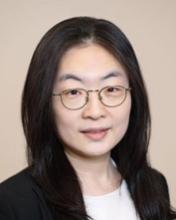
Minkyo Song, M.D., Ph.D.
National Institute on Aging (NIA)
Dr. Minkyo Song was born in South Korea and raised in Korea, Egypt, and the U.S. She received her B.S. from Seoul National University in Korea and her M.D. and Ph.D. from that university’s College of Medicine, where she also completed residency and obtained board certification in preventive medicine. In 2016, she joined NCI DCEG as a postdoctoral fellow, eventually becoming a research fellow. In 2023, she became a tenure-track investigator at NIA, where she serves as the head of the Immunoepidemiology Unit at the Laboratory of Epidemiology and Population Sciences. Her research focuses on understanding the association between autoimmunity and aging/age-related diseases in the population.
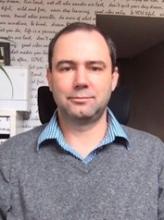
Leandro Vendruscolo, Ph.D.
National Institute on Drug Abuse (NIDA)
Dr. Leandro Vendruscolo began his research career in 1999 while he was in Pharmacy School at the Federal University of Santa Catarina, Brazil, investigating interactions between a psychostimulant and stress. He followed up with M.S. and Ph.D. degrees in pharmacology at the Federal University of Santa Catarina, Brazil, and the University of Bordeaux, France, where he investigated the influence of sex, genetic background, and environment on stress- and drug-related behaviors. Dr. Vendruscolo’s research focuses on investigations of the neurobiology of drug- and stress-related behaviors using preclinical models. He has discovered a critical contribution of corticoids and their receptors on addiction-like behaviors and that the blockade of glucocorticoid or mineralocorticoid receptors decrease drug intake in rodents and humans. He is developing new models of drug addiction and investigating the neurobiology of enhanced drug taking and seeking based on the concept that these maladaptive behaviors involve neurotransmitter imbalance in brain regions that are involved in reward, stress, and executive function.

Jacqueline B. Vo, Ph.D., R.N., M.P.H.
National Cancer Institute, Division of Cancer Epidemiology and Genetics (NCI DCEG)
Dr. Jacqueline B. Vo is a first-generation college graduate born to Vietnamese refugees and raised in Alabama. She obtained her B.S. in nursing and Ph.D. in nursing science from the University of Alabama at Birmingham and an M.P.H. in quantitative methods from the Harvard T.H. Chan School of Public Health. She joined the NCI DCEG as a Cancer Prevention Postdoctoral Fellow. She is currently an Assistant Clinical Investigator in the Radiation Epidemiology Branch (REB), DCEG. In REB, she merges her clinical cardiovascular nursing and epidemiological experiences to study treatment-related cardiovascular disease, secondary malignancies, and health inequities among cancer survivors. Specifically, she studies the impact of disaggregating Asian American from Pacific Islander individuals (two distinct racial groups) on cancer incidence and mortality. She is the co-Principal Investigator of the DCEG-Kaiser Permanente Breast Cancer Survivors Cohort, where she aims to study treatment-related adverse effects and increase the racial and ethnic diversity of the breast cancer survivors’ cohort.

